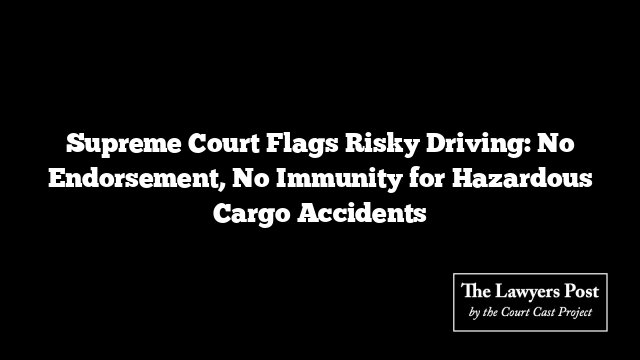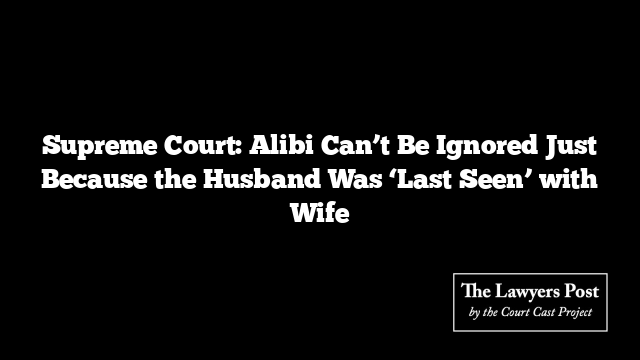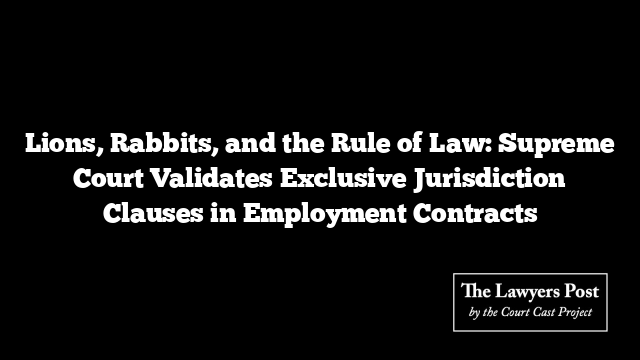If you’re behind the wheel of a truck meant to carry dangerous cargo, you’d better have the paperwork to prove you’re trained for it — or risk paying for much more than just fuel.
The Supreme Court has drawn a firm line around Rule 9 of the Central Motor Vehicles Rules, 1989 — the provision that mandates specific training and a special endorsement for drivers operating vehicles built to carry hazardous substances. And according to the top court, that requirement isn’t some bureaucratic red tape — it’s a core safety feature.
In a recent verdict, the Court backed the principle of “pay and recover” — allowing insurance companies to first compensate victims and then claw the money back from negligent vehicle owners, in cases where drivers lacked the proper Rule 9 endorsement.
This decision stemmed from a tragic incident involving an oil tanker. The driver held a valid transport license but lacked the required Rule 9 endorsement — specialized certification that ensures drivers are trained in handling dangerous goods, emergency protocols, and product safety. The accident killed both a pedestrian and a bicycle rider — sole breadwinners for their families.
The insurer had been ordered by both the Motor Accident Claims Tribunal and the High Court to compensate the victims’ families, with the right to recover that amount from the vehicle’s owner. Challenging this, the owner took the case to the Supreme Court, arguing that since the accident wasn’t directly caused by the hazardous cargo, Rule 9 shouldn’t apply.
The bench, however, wasn’t buying it.
The Court dismissed the owner’s argument that the vehicle wasn’t carrying hazardous material at the time. Based on testimony and earlier findings, it was clear — the tanker was transporting oil when the accident occurred. And that fact made all the difference.
The justices clarified that driving a hazardous-goods vehicle without proper endorsement isn’t a “technical” breach. It’s a serious violation — one that directly undermines road safety. The absence of specialized training in such cases can’t be shrugged off, even if the accident wasn’t caused by the cargo itself.
The Court also distinguished this case from National Insurance Co. Ltd vs. Swaran Singh, a ruling often used to argue that insurers can’t avoid payouts due to license-related issues. Here, the Court said, the lack of Rule 9 endorsement wasn’t just a missing stamp — it was a breach with real consequences.
The judgment reaffirmed a key principle: driving a vehicle designed to carry hazardous substances without the required training and legal endorsement strips both the driver and the owner of any protective cover. The insurer, in such a scenario, remains liable to the victim but can — and should — seek recovery from the rule-breakers.





